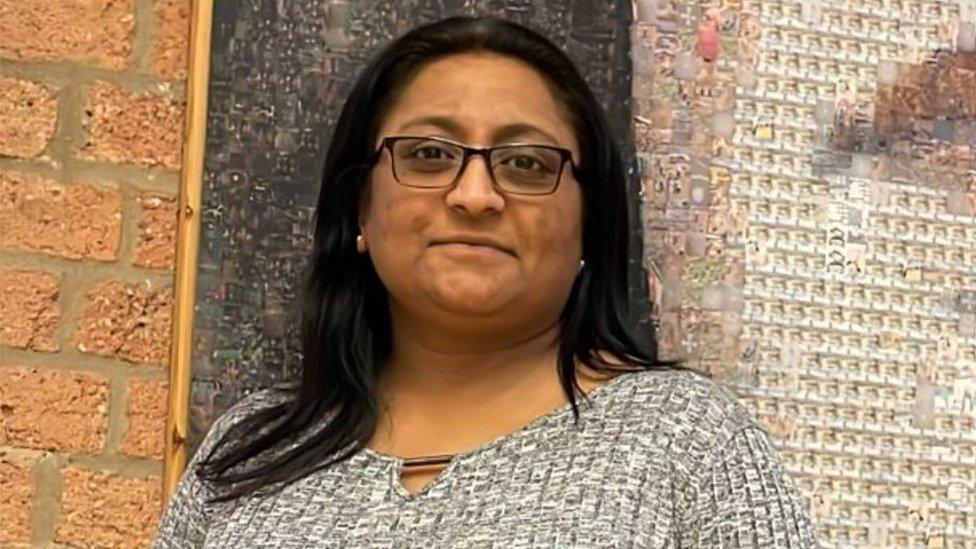Cost of living: 'They don't know what it's like on poverty line'
- Published
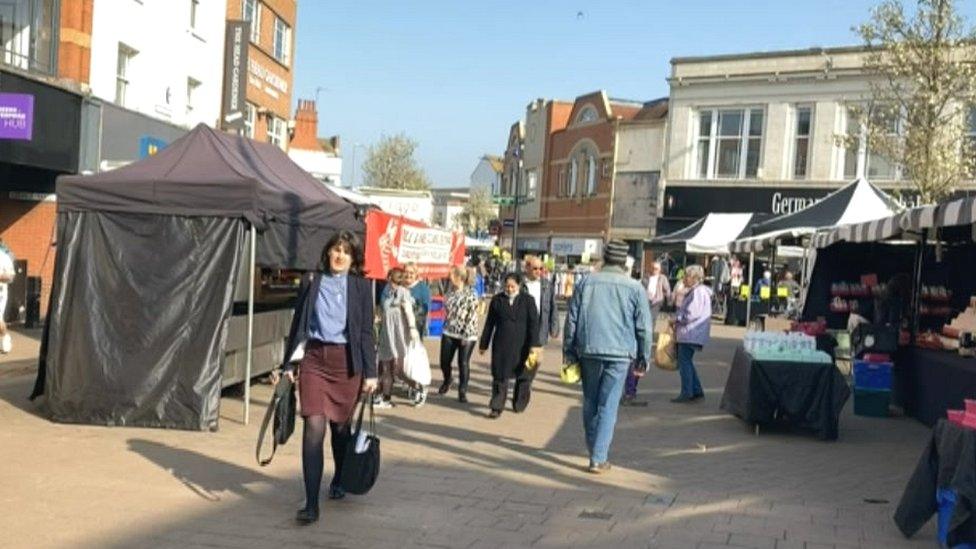
Shoppers at Loughborough Market said they worried that prices would continue to rise
As the cost of living continues to rise, people are having to make difficult spending decisions over the coming months.
On Wednesday Chancellor Rishi Sunak announced he would cut fuel duty, raise the threshold at which people start paying National Insurance, and pledged to cut the basic rate of income tax before the next general election.
But shoppers in Loughborough, Leicestershire have told BBC News his statement did not go far enough to ease their money pressures.
Liane Davies, 33, said she had to agonise over whether to turn the heating on or not because of rising costs.
"It's difficult when you have children at home who are cold, asking for the heating on and having to say 'no'," she said.
"I'm worried because things don't look to be slowing, and you can't budget for something when you don't know if things will rise again and you don't have enough to budget for it anyway."
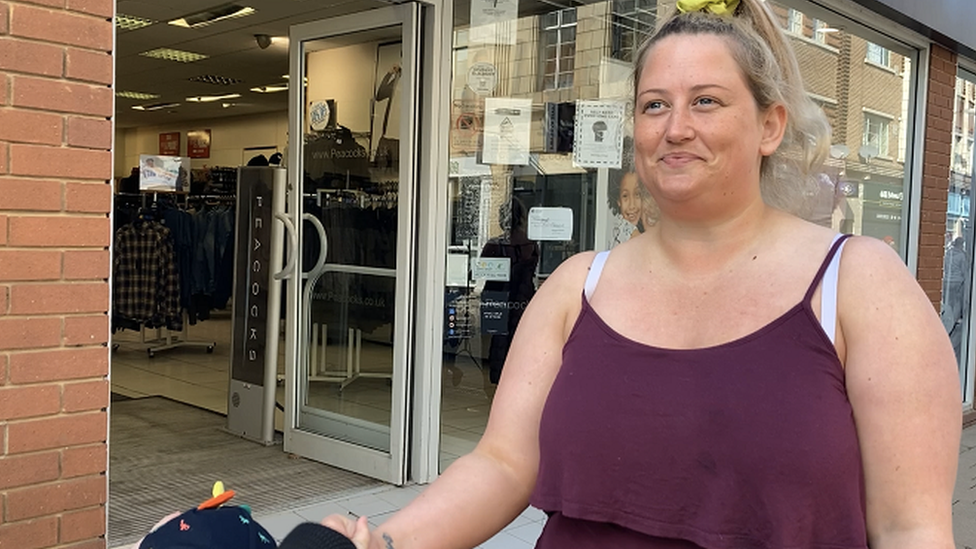
Liane Davies has made difficult decisions on whether to turn on her heating
She said Mr Sunak was "completely disengaged with the working class".
"They don't have an idea what it's like to be on the poverty line," she said.
"Prices of fuel, of heating... there's no need for anything to be rising this much and it will rise again."
'Savings eroded'
Keith Fleming, from Newtown Linford, said he had noticed food bills going up but his biggest worry was his pension and savings.
"A lot of people are getting pay rises to compensate for inflation but the pensions are lagging behind," said the 73-year-old.
"There are no increases on pensions, so pensioners are not seeing any increases in their income.
"Like most pensioners we fall back on savings, but the savings rate is lagging far behind the inflation rates, so your savings are being eroded by the increase in the cost of living."
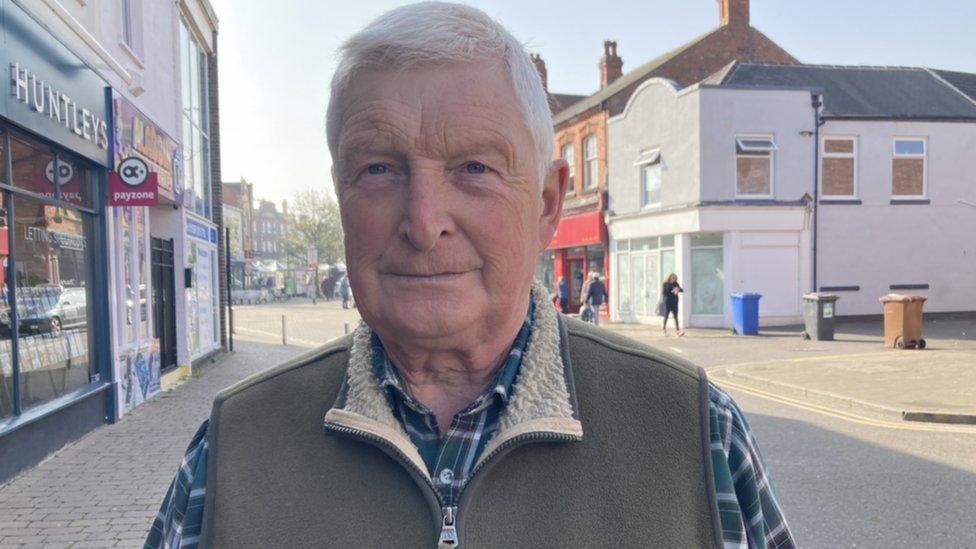
Keith Fleming said pensioners were seeing their savings "eroded" by rising costs
Meanwhile market trader, Sophia White, 47, said people were watching what they bought too.
"It's middle-class people like us who are trying to work, and don't get anywhere," she said.
"We have to pay the fuel, which is ridiculous, to get to work and then people won't buy because they are in the same situation. Everyone's struggling.
"I stand in the cold all day long, 14-16 hours a day, and go home and have to freeze.
"There's no end, it's just going to get worse."
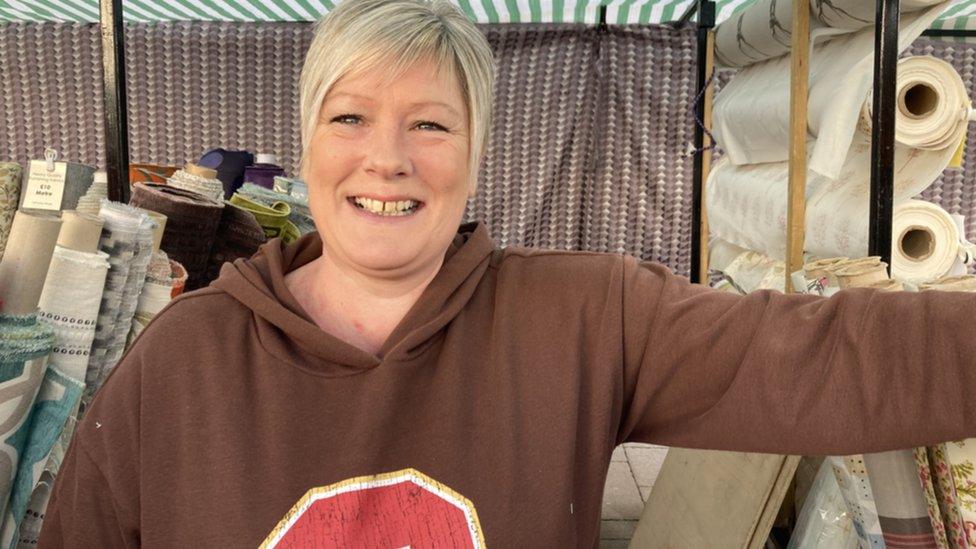
Trader Sophia White said everyone is watching what they spend
During a visit to Caunton Engineering in Moorgreen, Nottinghamshire on Thursday, Rishi Sunak defended his plans.
"I know the biggest thing that families are struggling with right now is the cost of living, which is why yesterday we announced a new tax plan which would deliver the biggest net cut to personal taxes in a quarter of a century," he told BBC Breakfast.
"Whilst I can't solve every problem, and I've always tried to be honest about that, where we can make a difference, I want to."
'Let family down'
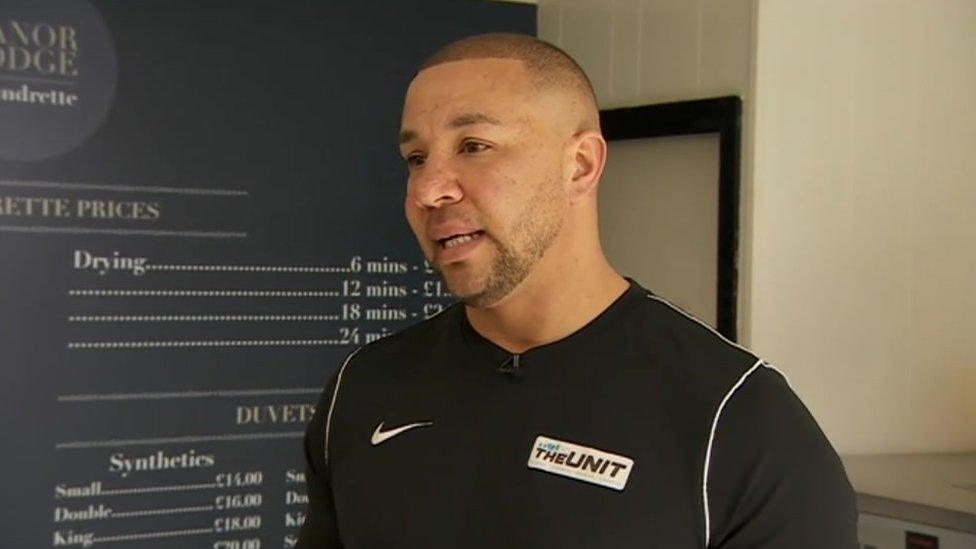
The laundrette has been in Josh Quailey's family for years
In another Leicestershire town, Melton Mowbray, businesses say they are struggling and one family-run laundrette is having to shut its doors due to increasing running costs.
The Manor Lodge Laundrette was set up by Josh Quailey's grandmother and he said it was "heart-breaking" to make the decision to close.
"I feel a bit like I've let the family down," he said.
"The deal-breaker was when we had our energy renewal quotes through - my gas was going to treble.
"I can't justify putting the prices up to the customers."
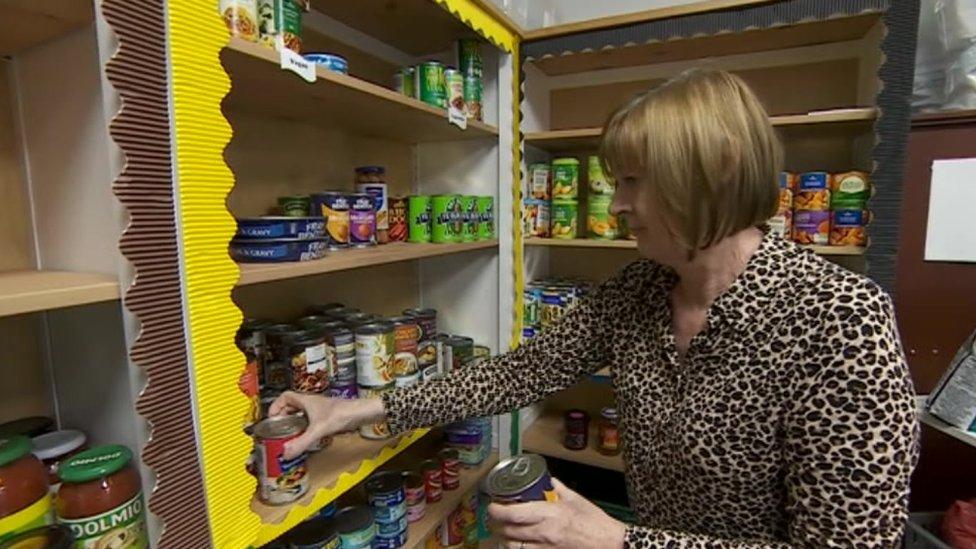
The Storehouse food bank said demand had trebled in a year
Melton's Storehouse food bank said demand had trebled in the last year and it was giving out more than 200 bags of food a week.
"Some are really worried that if they can't pay their bills or can't pay the rent they're going to be homeless," said coordinator, Siggy Atherton.
"I've got people who are employed but their money goes on everything else like paying the bills and there's nothing left for food.
"So we've got people who never thought they would need a food bank coming and they are absolutely distraught."

Follow BBC East Midlands on Facebook, external, Twitter, external, or Instagram, external. Send your story ideas to eastmidsnews@bbc.co.uk, external.
- Published23 March 2022
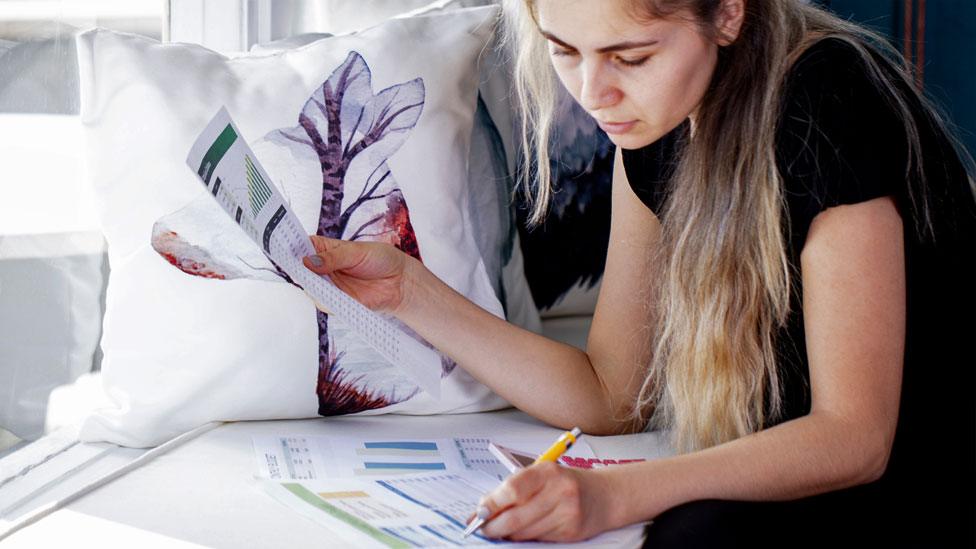
- Published23 March 2022
- Published23 March 2022
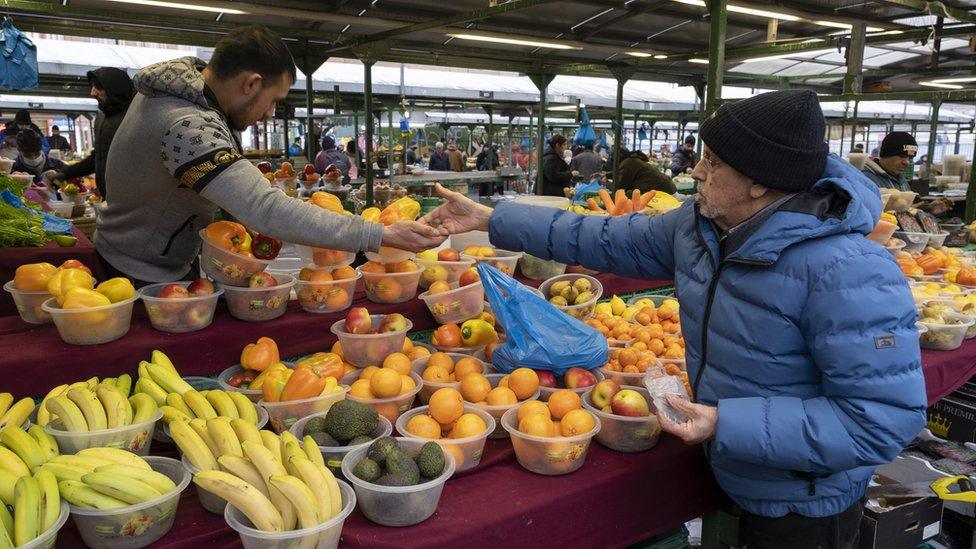
- Published23 March 2022
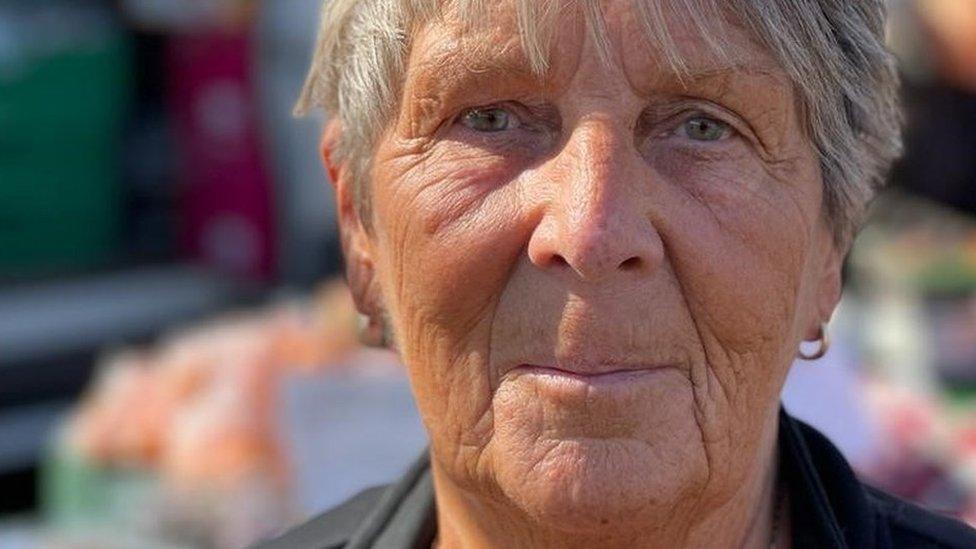
- Published23 March 2022
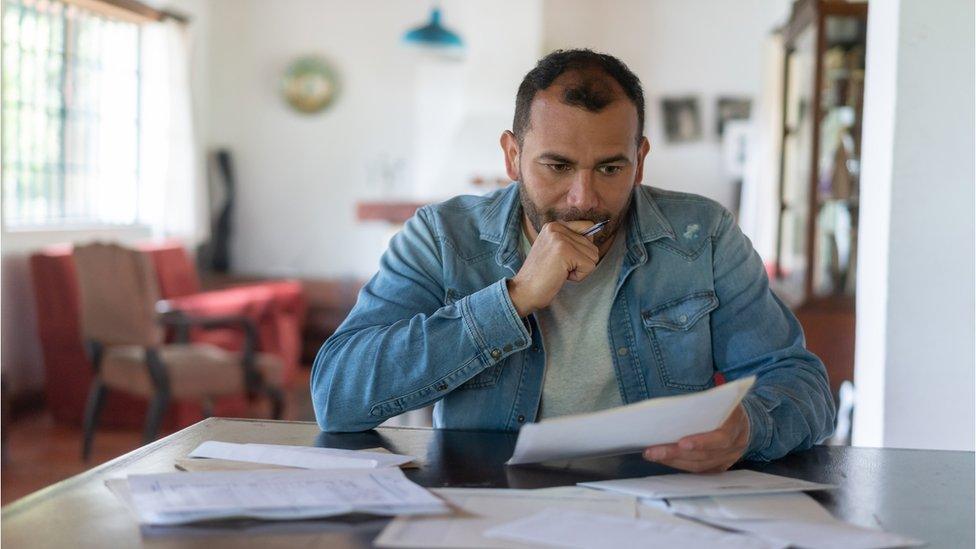
- Published23 March 2022
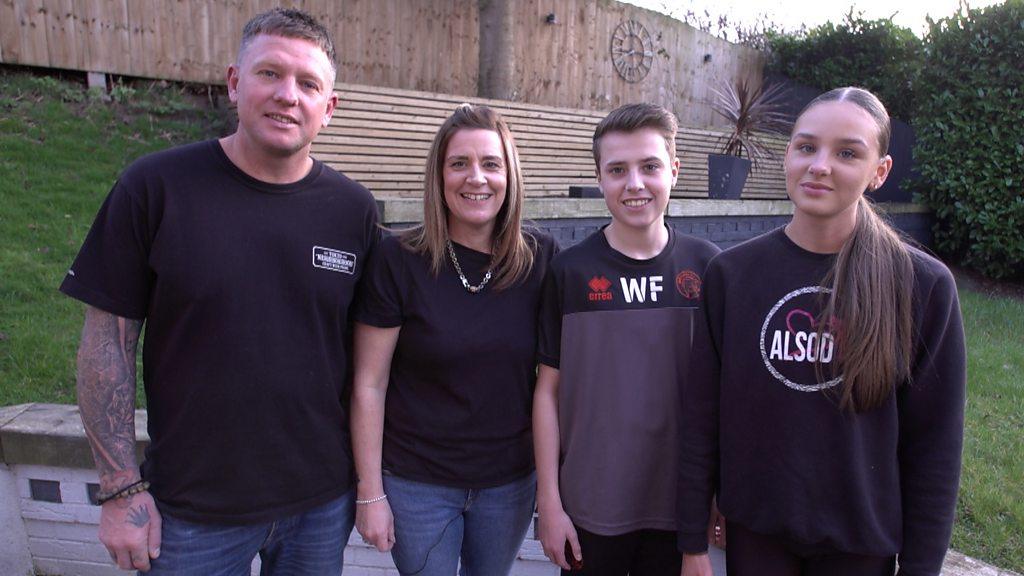
- Published8 February 2022
